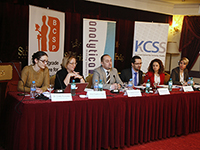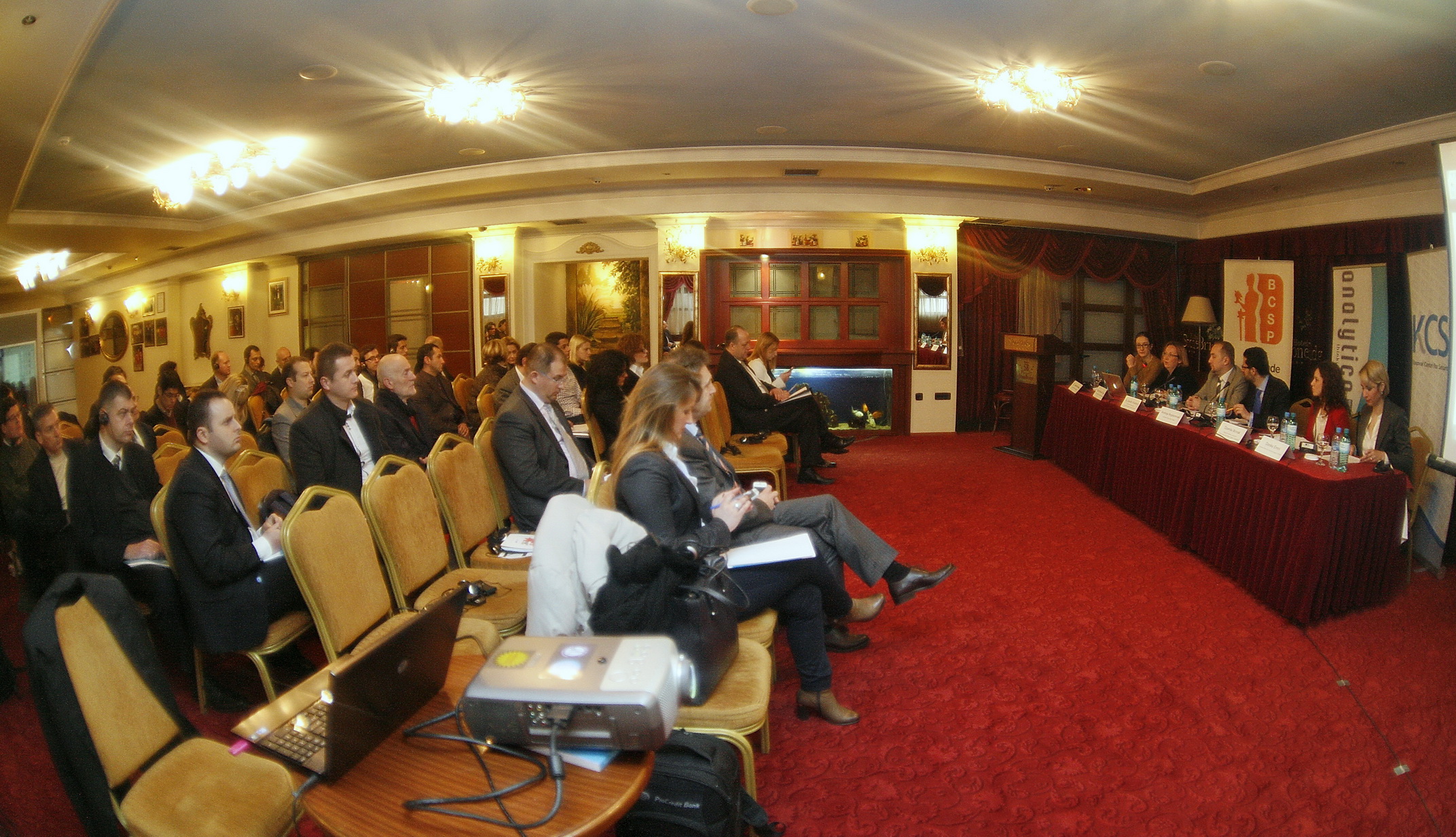Conference: “Security Transitions in Western Balkans: from Conflict Zone to Security Community”, Skopje
 On Friday 19 December, Analytica together with the Belgrade Centre for Security Policy and five other partner think tanks from the Western Balkans organised a conference titled: "Security Transitions in Western Balkans: from Conflict Zone to Security Community".
On Friday 19 December, Analytica together with the Belgrade Centre for Security Policy and five other partner think tanks from the Western Balkans organised a conference titled: "Security Transitions in Western Balkans: from Conflict Zone to Security Community".

On Friday 19 December, Analytica together with the Belgrade Centre for Security Policy and five other partner think tanks from the Western Balkans organised a conference titled: “Security Transitions in Western Balkans: from Conflict Zone to Security Community”. The panellists provided insights how regional police cooperation enhances the formation of security community and the role that the EU integration has in making sure that these positive trends continue in the future. Additionally, it was said that most of the interaction when it comes to police cooperation with the “other” was happening on the borders where police officers are exposed with some form of external cooperation on a daily basis with their colleagues. Here, Dr. Cvete Koneska provided example of the border cooperation between the police of Macedonia and Albania. Sonja Stojanovic Gajic from the Belgrade Centre for Security Policy illuminated an on-going process within the region by suggesting that there are two sub-regions emerging, one being the former Yugosphere and an Albanian part. Overall the region has reached a stage where traditional armed conflicts are not a threat anymore leaving space for enhancement of on-going security cooperation.
Key objectives of the conference were:
- To provide answer to the question, whether the Western Balkans has become a security community where all the disputes between countries are resolved in a peaceful manner?
- To Illuminate how different professionals (soldiers, police officers, diplomats and academics) cooperate on security related topics in the region and which of these contribute the most to regional security cooperation.
- To map the success stories of regional security cooperation as well as the gaps.
For this purpose we had two panels dealing with 1) regional police cooperation 2) view from diplomats, soldiers and academics on the formation of regional security community.
The conference promoted research findings from the three years long research project “Security Transitions in Western Balkans: from Conflict Zone to Security Community”, funded by the Research Council of Norway. One of the outputs of the project is publishing a book.
Conference panelists:
Sonja Stojanovic Gajić, BCSP, Belgrade
Cvete Koneska, Analytica, Skopje
Sandro Knezović, Institute for Development and International Relations (IRMO), Zagreb
Donika Emini, Kosovo Centre for Security Studies (KCSS), Pristina
Dženita Brčvak, Centre for Democracy and Human Rights (CEDEM), Podgorica
Arjan Dyrmishi‚ Institute for Democracy and Mediation (IDM), Tirana
Denis Hadžović, Centre for Security Studies (CSS), Sarajevo


